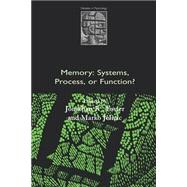- ISBN: 9780198524069 | 0198524064
- Cover: Paperback
- Copyright: 3/25/1999
Memory represents a key psychological process. It allows us to recall things from the past which may have taken place hours, days, months, or even many years ago. Our memories are intrinsically personal, subjective, and internal, yet without the primary capacity of memory, other importantactivities such as speech, perception, concept formation, and reasoning would be impossible. The range of different aspects of memory is huge, from our vocabulary and knowledge about language and the world to our personal histories, skills such as walking and talking, and the more simple memorycapacities found in lower animals. Amongst the diversity of memory processes, the principal focus in this volume is the long-term representation of complex associative human memory. This refers to the permanently stored representation of individual items and events. The books in the Oxford Debatesin Psychology series aim to provide students and researchers with a stimulating, self-contained, and balanced summary of the various theoretical and empirical positions that shape the most controversial and contested areas of research. Memory: Systems, Process, or Function? presents a a debate aboutthe cognitive architecture of the human long-term memory system. The individual chapter authors represent some of the leading researchers and theorists in the field. Each chapter concentates upon the central theoretical question of how long-term memory can best be conceptualized. In particular, islong-term memory best regarded as comprising multiple independent systems (each with distict properties and attributes), as a processing framework which can be tapped via different levels of processing, or as a complex fnction which can be used in a flexible and task-appropriate manner? The authorsof each chapter present their own answers to this and related research questions. The book concludes with an integrated synopsis and appraisal of the different facets of this fascinating debate.







